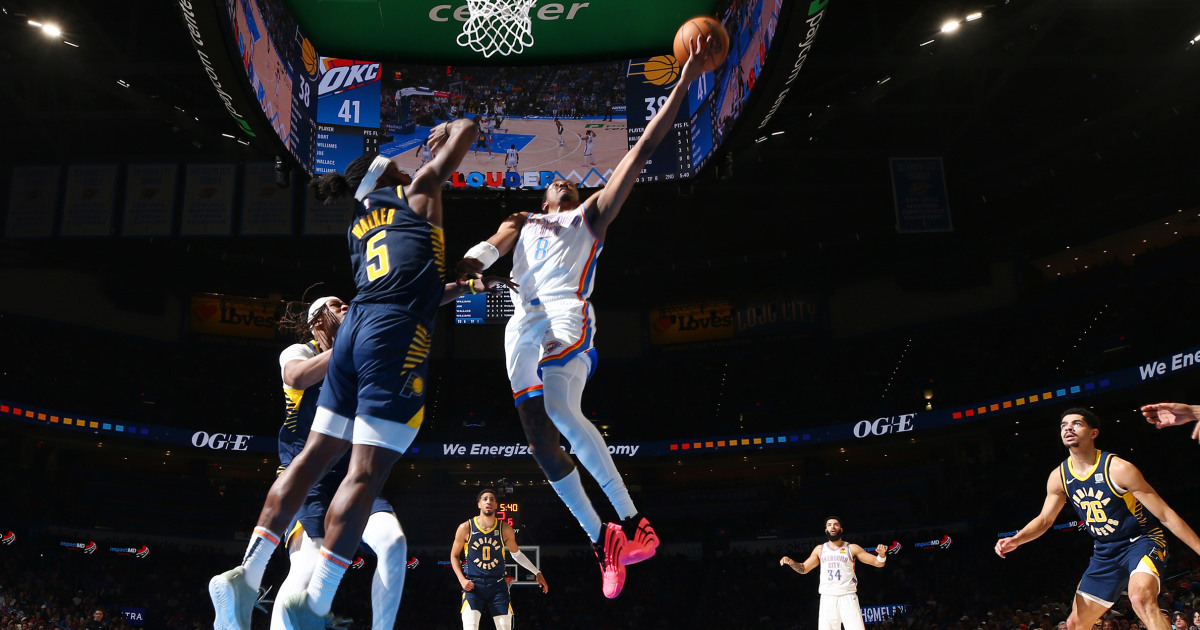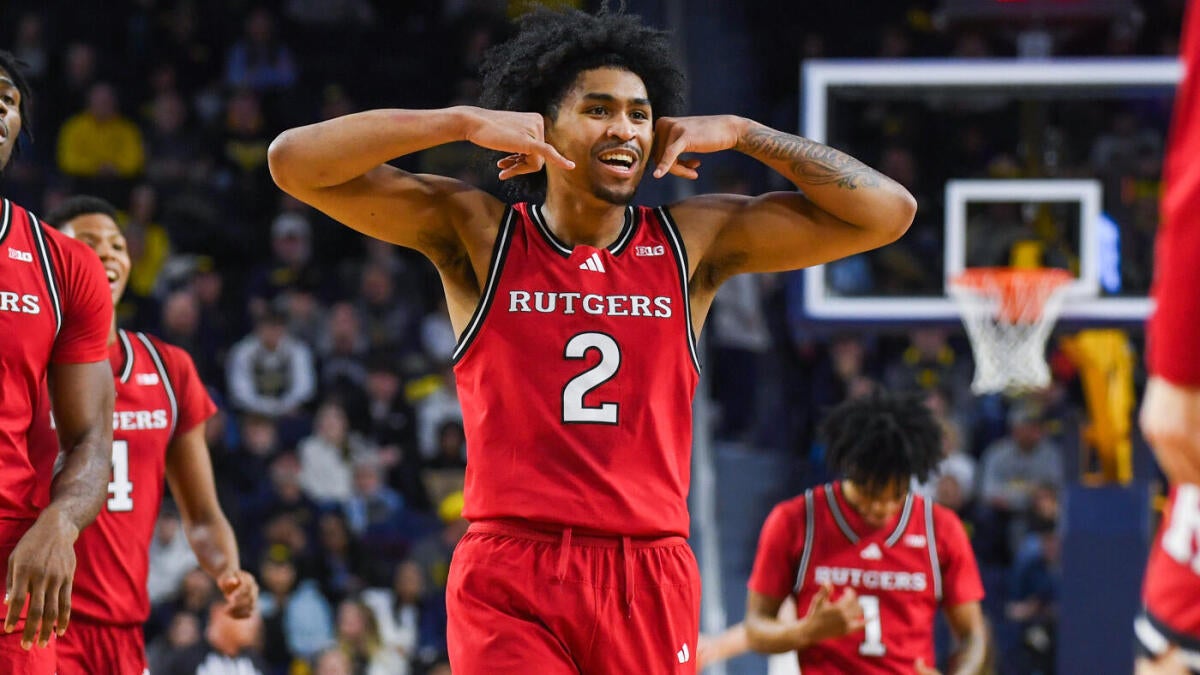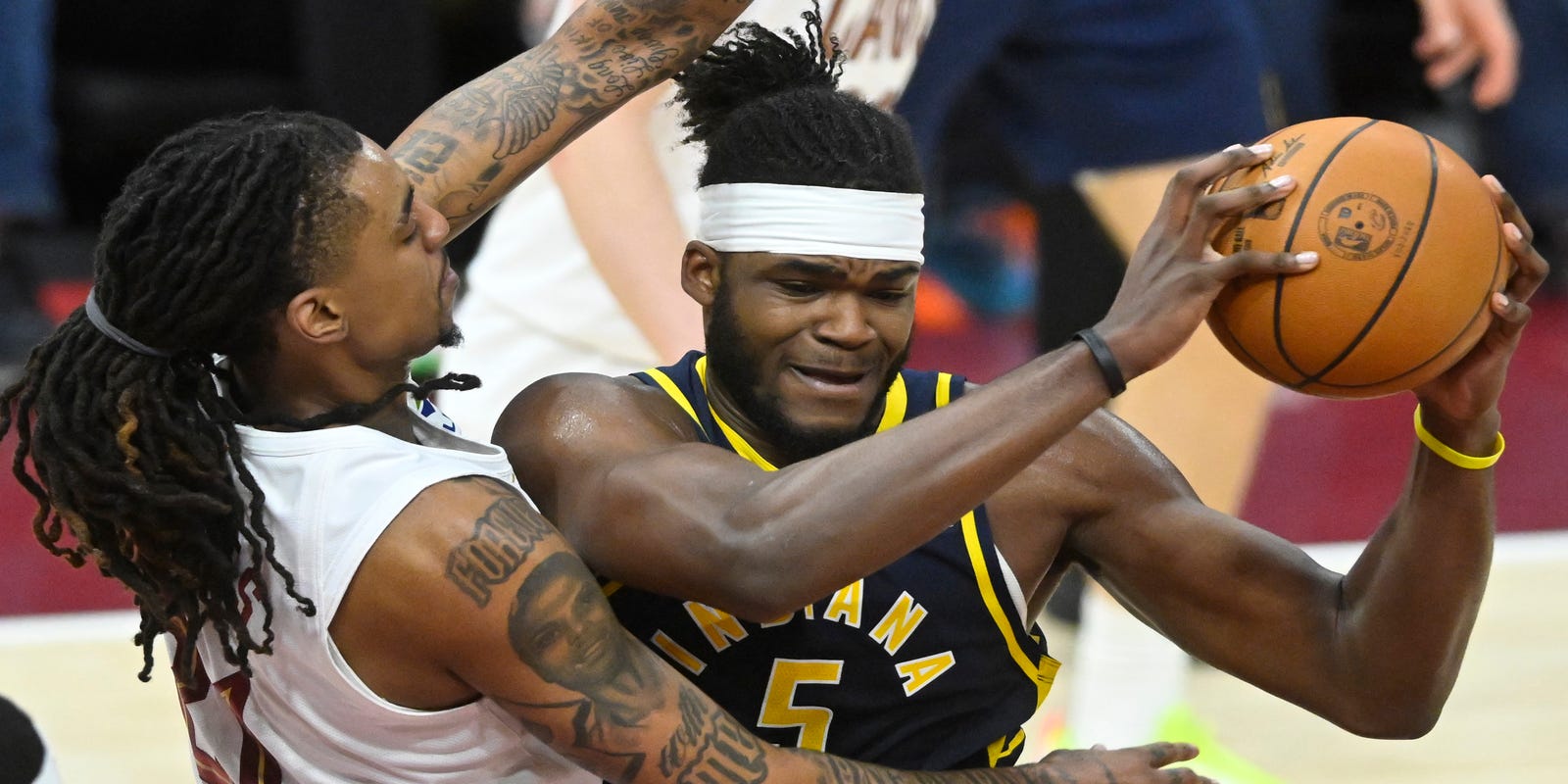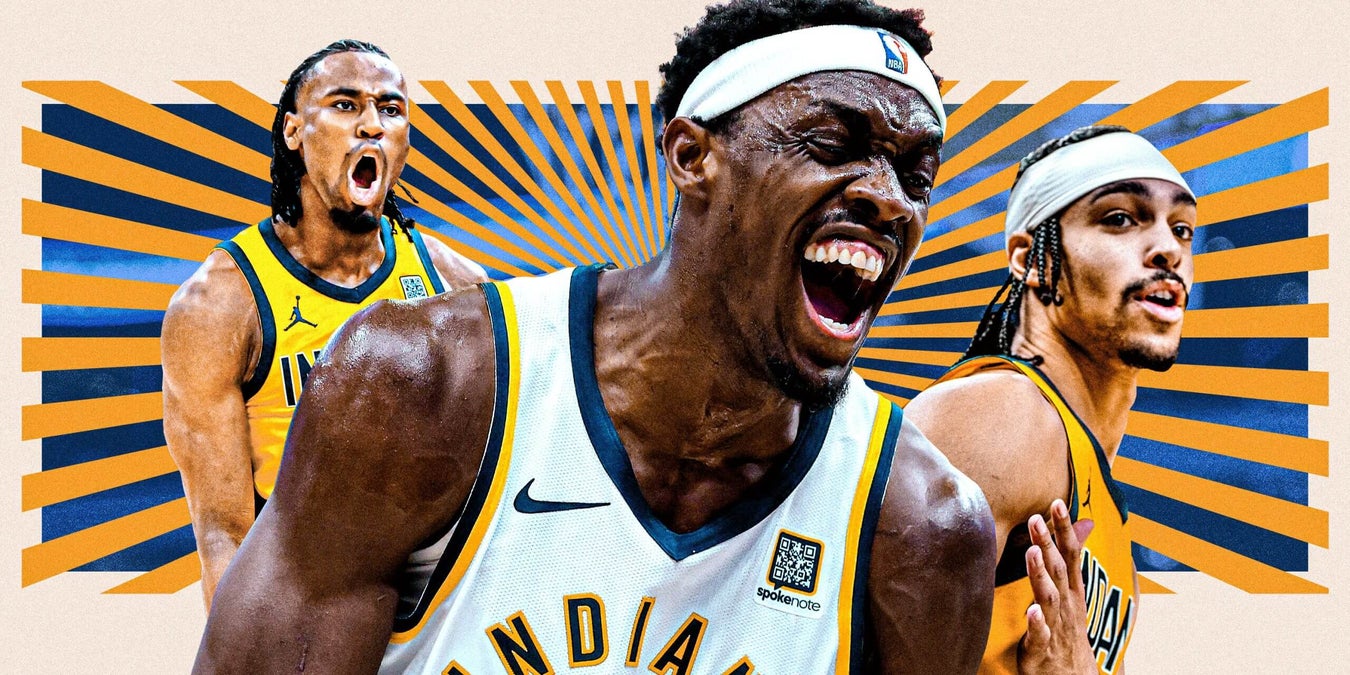
These NBA playoffs have defied conventional wisdom about what works, and what doesn’t, in the postseason.
Double-digit comebacks? Playing on the road? Inexperience? Neither has been an impediment for the Oklahoma City Thunder and the Indiana Pacers, who have overcome each to make the NBA Finals. The Thunder have the second-youngest roster to have made the Finals in the last 70 years. The Pacers, meanwhile, have thrived on the road and are winning despite historically low odds.
Amid all that upheaval, however, one rule remains unchanged: To win an NBA title, a top-four seed is all but a requirement.
This season’s Finals are the 79th in the league’s history. Of the previous 78 championships, 77 were won by top-four seeds.
The latest finalists meet that criterion. Oklahoma City finished the regular season with the West’s top seed, while Indiana was fourth.
Still, decades of precedent suggest that only Oklahoma City meets the NBA’s even tougher championship standard, because each of the league’s last 29 champions has been top-three seeds. If Indiana wins this season’s NBA title, it would become only the second fourth-seeded champion in league history and the first since 1981.
The lesson: The NBA regular season is often maligned for its length, but that length has also proved to be an effective predictor of which teams can endure four consecutive best-of-seven playoff rounds.
“If you look at over 82 games, it’s a pretty good sample size to tell you who are the best teams,” said a scout for an Eastern Conference team, who asked not to be identified because he wasn’t authorized to talk publicly. “Could it happen one day that a team outside the top four wins? Could this season [seventh-seeded] Golden State have caught lightning in a bottle, like they did a couple years ago? I think it could still happen.”
Yet it hasn’t in 30 years. The 1995 Houston Rockets are still the only outlier to the top-four rule. They entered the postseason with the West’s sixth-best record and left it as champions of the whole league.
Owning a seed outside the top four hasn’t been a disqualifier for advancing to the Finals. The 1999 New York Knicks and the 2023 Miami Heat got there as eighth seeds, the lowest possible in the NBA’s postseason format. Houston was sixth in 1981, and Miami (2020) and Dallas (2024) were both fifth seeds when they made the Finals. Each case proved that it’s possible to ride a hot streak all the way to the Finals — but once a team is there, it’s likely that a team that has been better for longer will be waiting. None of those series went longer than six games.
Teams are well aware of the historical link between regular-season success and the postseason and that flipping the proverbial “switch” from an aimless regular season to a focused postseason is difficult. In 2023, in the wake of the Los Angeles Clippers’ limping out of the playoffs’ first round, the team’s top basketball executive said the franchise needed to change its entire approach to “get back to honoring and respecting the regular season.” That executive, Lawrence Frank, even cited the statistic that nearly the past three decades of champions had all been top-three seeds.
“So you have to earn it,” Frank said. “The regular season matters.”
It does in the NBA more than in other sports.
More from Sports
The NFL’s postseason structure, with one game per round, practically invites variance. The most famous example remains the New York Giants, who in 2007 snuck into the postseason with a 10-6 record, then knocked off the undefeated New England Patriots. Those Giants are just one of seven teams to have won the Super Bowl despite not having won their own divisions.
Even in the MLB and NHL playoffs, which each feature seven-game series, there isn’t as strong a carryover between the regular season and the postseason as in the NBA. The Los Angeles Kings won the 2012 Stanley Cup as an unexpected champion. Eight wild card teams have won baseball’s World Series. When academics from Smith College, Loyola University Chicago and Skidmore College studied how randomness affected postseason success among North American sports in 2017, their paper found that the better team advances in the NBA Finals 80% of the time, compared with about 60% in NHL and MLB series.
By that count, Indiana has already done the unexpected by beating higher-seeded teams twice — East No. 1 (Cleveland) and No. 3 (New York) — just to reach the Finals. The Pacers did it, in part, by maintaining a fast pace and upending the long-held truism that games slow down in the postseason. Can they pull off another upset by beating Oklahoma City, which won 68 games in the regular season by one of the highest average margins in NBA history?
These playoffs have shown that anything is possible. Almost anything, anyway.



